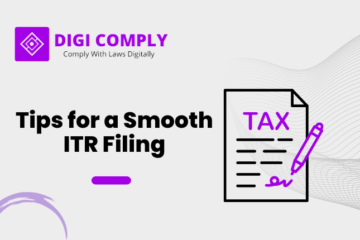The United Arab Emirates (UAE) has recently introduced a new corporate tax regime, which is set to come into effect from June 1, 2023. This development marks a significant milestone in the country’s taxation framework, impacting companies and individuals engaged in business activities within the UAE. The UAE Corporate Tax system brings forth a range of provisions, rates, and exemptions that aim to foster economic growth while ensuring a fair and balanced tax structure.
Scope and Applicability:
The UAE Corporate Tax applies to companies and individuals conducting business operations in the UAE. The tax period commences on or after June 1, 2023, and is levied on profits generated from the sale of goods and services. This comprehensive legislation encompasses the taxation of business profits earned by both UAE residents (within the UAE and abroad) and non-residents with a Permanent Establishment (PE) in the UAE or income sourced from the country.
Key Points:
1. Tax Rates and Exemptions: Under the new regime, the UAE has set a corporate tax rate ranging from 0% to 9% on taxable income. This 9% rate is the lowest among the Gulf Cooperation Council (GCC) countries, with Bahrain being the sole exception. Certain qualified income earned by entities operating in Free Trade Zones remains tax-exempt, subject to specific conditions. For taxation purposes, taxable income refers to earnings exceeding AED 375,000.
2. Foreign Tax Credit and Withholding Tax: Companies liable for taxation in foreign countries on their UAE taxable income are entitled to a Foreign Tax Credit. This provision ensures that the UAE Corporate Tax liability is reduced by the amount of tax paid in a foreign jurisdiction. Furthermore, the UAE has implemented a 0% withholding tax on all income, promoting a favorable business environment for both local and international entities.
3. UAE Corporate Tax for Individuals: In general, individuals are not subject to UAE Corporate Tax unless they engage in a business or profession in the UAE. If their earnings exceed AED 375,000, a corporate tax rate of 9% will be applicable.
Key Features of the UAE Corporate Tax System:
a. Federal Tax: The UAE Corporate Tax is a federal tax applicable across all Emirates, with the tax revenue shared between the Federal and Emirati Governments.
b. Administration: The Federal Tax Authority assumes responsibility for the administration, collection, and enforcement of the UAE Corporate Tax.
c. Competent Authority: The Ministry of Finance remains the Competent Authority for bilateral and multilateral agreements, as well as the international exchange of information for tax purposes.
Pre-requisites for Tax Practitioners/Professionals:
To effectively navigate the UAE Corporate Tax regime, tax practitioners and professionals must be familiar with the following key aspects:
1. Determining UAE Tax Residency: Understanding the criteria to determine whether an individual or entity is a UAE tax resident or non-resident.
2. Taxable Income: Identifying the types of income that are subject to taxation for UAE residents and non-residents.
3. Exemptions: Recognizing exempt income and entities, as well as understanding the income that is exempt from tax.
4. Calculation of Taxable Income: Understanding the process of calculating taxable income, including deductible expenses from revenue.
5. Tax Group Formation: Familiarizing with the formation of tax groups for entities with multiple companies, which allows for the filing of a single income tax return for the entire group.
6. Transfer Pricing: Adhering to transfer pricing regulations for transactions between Associated Enterprises and Connected Persons.
7. Connected Person Concept: Understanding the concept of Connected Persons and its impact on deductible expenses beyond prescribed limits.
8. Corporate Tax Liability: Knowing how to calculate corporate tax liability for entities falling within the scope of UAE Corporate Tax.
9. Administration: Managing the administration of UAE Corporate Tax, including filing returns, assessment, and tax deposits.
Frequently Asked Questions – Corporate Tax in UAE
1. What does corporate tax mean in the UAE?
Corporate tax, also known as Corporate Income Tax or Business Profits Tax, is a direct tax imposed on the net income or profit of corporations and other business entities. In simple terms, it is a tax levied on the profit earned by businesses, requiring them to pay a certain percentage of their profit as tax.
2. Who is liable to pay corporate tax in the UAE?
All businesses with a taxable net profit exceeding 375,000 AED are subject to corporate tax and must pay a specific percentage of their net profit as corporate tax.
3. What is the corporate tax rate in the UAE?
The corporate tax rate in the UAE is 9% of the net profit generated by businesses. However, to support small businesses and startups, the corporate tax rate is 0% if the net profit is up to 375,000 AED.
4. When does the federal corporate tax come into effect in the UAE?
The implementation of the corporate tax starts from the financial year commencing on or after June 1st, 2023.
5. When will the authorities release the corporate tax law?
The authorities have already released the corporate tax law on December 9th, 2020. The UAE corporate tax law is available on the official website of the Ministry of Finance. To download the law, visit the Ministry of Finance website.
6. Which businesses or incomes are exempt from corporate tax?
All businesses exceeding the 375,000 AED profit threshold are required to pay corporate tax. However, certain types of businesses or income are exempt. Here is a list of entities or income that are exempt from corporate tax:
– Individuals are not subject to corporate tax, meaning income from employment, real estate, investments in shares, and personal income unrelated to business in the UAE is exempt.
– Foreign investors who do not conduct business in the UAE are not liable for corporate tax.
– Corporate tax incentives continue to be offered to free zone businesses complying with regulatory requirements.
– Capital gains and dividends received by UAE businesses from qualifying shareholdings are exempt.
– Qualifying intragroup transactions and restructurings are also exempt.
7. How is corporate tax calculated in the UAE?
Corporate tax in the UAE is calculated at a rate of 9% on the net profit reported in a company’s financial statements. The 9% corporate tax applies only if the taxable net profit exceeds 375,000 AED. In other words, net profits up to 375,000 AED are taxed at 0%.
For example, if the net profit is 475,000 AED, the corporate tax will amount to 9,000 AED (475,000 – 375,000 x 9/100).
Conclusion:
The UAE’s implementation of a relatively low corporate tax regime, coupled with its dynamic business environment and strategic location, positions the country as an attractive destination for businesses and investors. With the new tax framework, the UAE aims to foster economic growth, maintain a fair tax structure, and solidify its status as a thriving hub for global commerce. The comprehensive provisions, favorable tax rates, and exemptions offered under the UAE Corporate Tax system provide businesses and individuals with clarity and confidence when operating within the country’s borders.
If You have any queries then connect with us at support@legalsuvidha.com or info@digicomply.in & contact us & stay updated with our latest blogs & articles





